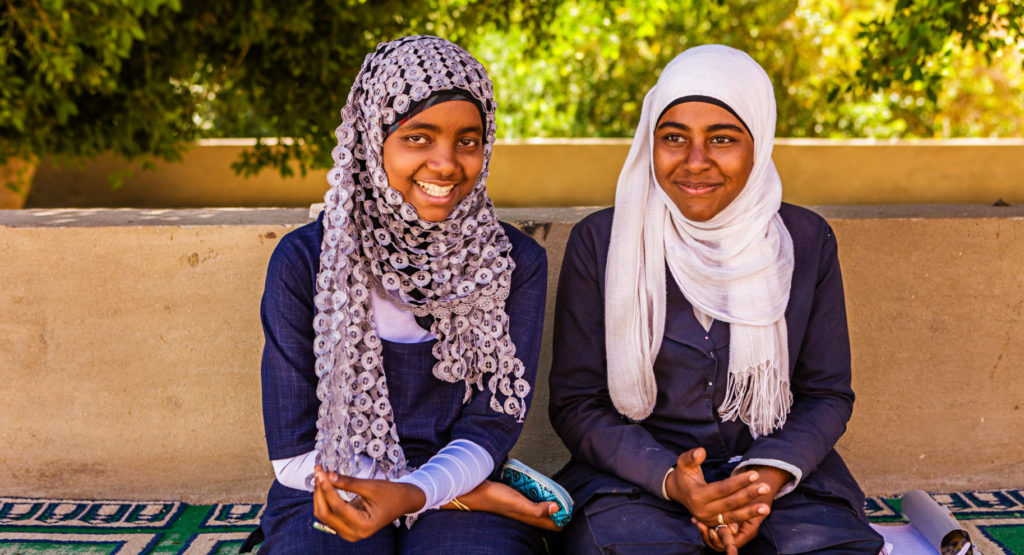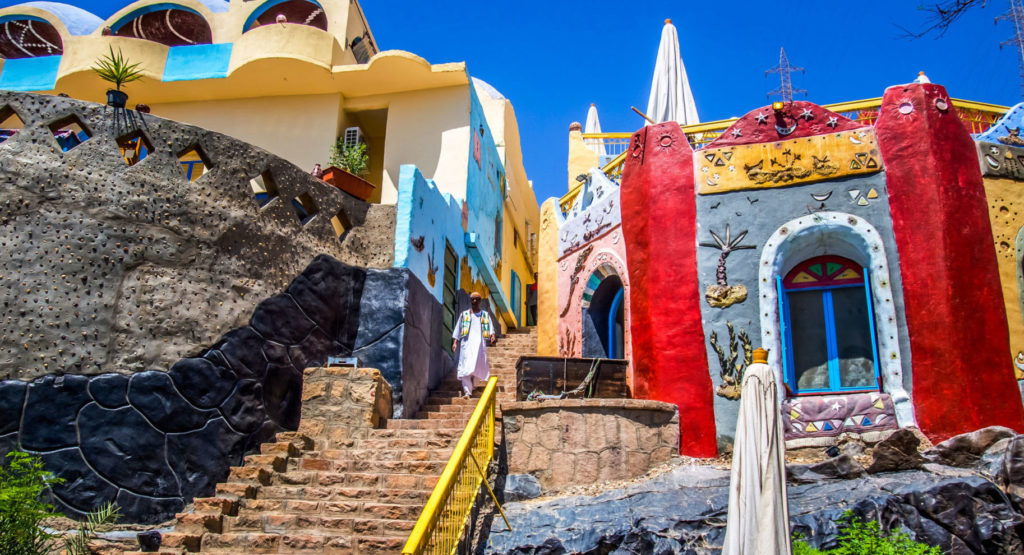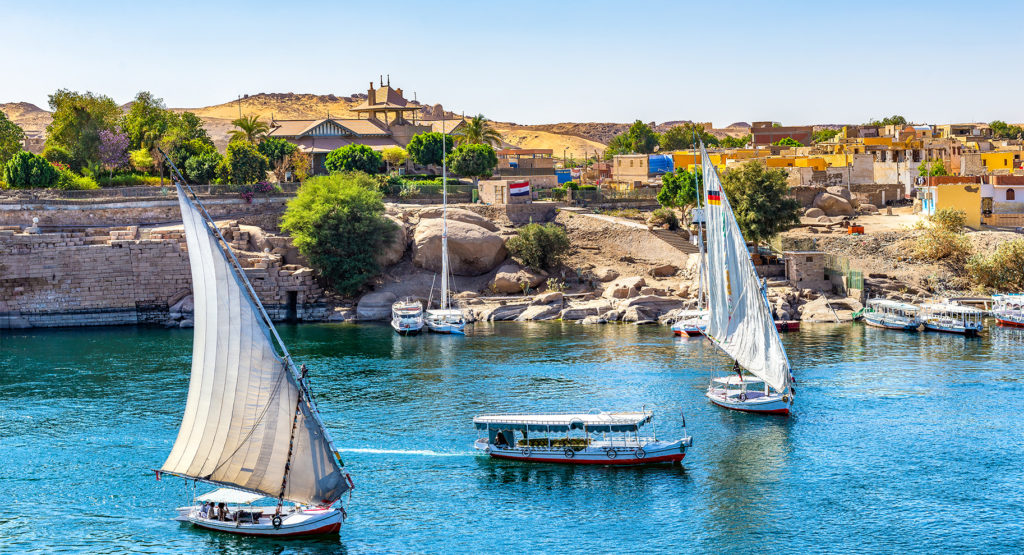In This City is a challenge to journey with us in prayer for 12 key cities in 2020. We ask you to commit to praying for fruit that will ripen and bear the seeds for mature, vibrant, and multiplying churches across the Arab world.
Introduction
Journey with us along the river Nile to Egypt’s most southern city, Aswan. Overshadowed by bustling Cairo and the more famous Luxor, this riverside city is a hidden gem. Steeped in classic Egyptian history, Aswan has much to offer tourists and remains a popular destination for backpackers looking for somewhere a little off the beaten track.
Historically the region is homeland to the Nubian people. The Nubians were once a mighty nation, extending their pharaonic rule as far as northern Egypt. Now Aswan is a blend of urban city streets and quieter village life. It is still home to the Nubian people, and their colourful communities and long-established way of life attract travellers in search of traditional Egyptian culture.
The Beja people are another unreached people group in southern Egypt, northern Sudan and Eritrea. They are a proud Bedouin people who raise their animals in the harshest of conditions where summer temperatures often reach 47 or 48 C (116-118 F). They are suspicious of outsiders and have been very difficult to reach.

3D Render of a Topographic Map of the Aswan Dam, Egypt.
About Aswan
Population: 300,000
Religions: More than 90 per cent Muslim, less than 10 per cent Christian. Of the 10 per cent Christian, 95 per cent are Coptic Orthodox with smaller numbers of evangelicals and Catholics.
Ethnic groups:Upper Egyptian, Nubian and Beja
Location: 880 km south of Cairo and 320 km north of Sudan
Key historical events: Nubians started to come to Christ in the mid-fifth century and Nubia became a Christian nation in 540 AD. Nubian armies held out against Muslim invasion for centuries longer than the rest of Egypt and North Africa. Finally, in about 1300, they were defeated, and over the next 200 years, they gradually converted to Islam until not a single Christian was left. At times there was intense pressure to convert, such as under the Mamluks, but at other times people converted because it gave them social, political and business advantage. One of the reasons that this Ancient church did not remain was that the Bible had not been translated into the Nubian language. The church functioned in the Coptic language, the language of Egypt, which limited the depth of its penetration into the hearts of the people.

Challenges
People
The Nubian people have a deep connection to the land and river. Historically they farmed along the Nile, but when the Aswan High Dam was built during the 1960s, much of their homeland was flooded by the creation of Lake Nasser. Many Nubians were relocated to villages away from the Nile. This has led to resentment and marginalisation. Overall, Nubians are warm, welcoming and open to relationships, but until now, there has been little response to the gospel.
The turbulent Egyptian economy of recent years has been hard on all the people of Egypt. The removal of subsidies on necessary food supplies like bread and sugar has hurt the poorest. Local salaries have not kept up with the rampant rate of inflation in the country, resulting in financial hardship for many individuals and families.
Seekers
Seekers face a hard road in Aswan. Just as in many other Arab cities, becoming a Christian in Aswan is dangerous and carries consequences if discovered. When one woman had a dream of Jesus and chose to put her faith in him, her husband sent her away and told her two young children that she was dead. Another believer was rejected by his family, and his brother threatened to kill him. Generally, seekers have come to faith only one at a time, but recently, we are seeing groups forming and studying the Bible together. Some have put their trust in Christ. This holds promise that they may be able to remain in their communities and support each other.
Team
The vast majority of foreign Christian workers in Aswan have had to leave. Some lost their visas, others faced the destruction of their businesses, and others suffered personal challenges. But we praise the Lord that he has used these difficulties to raise up leaders in the Egyptian church who are continuing the work. God is using them in powerful ways, and the difficulties they face are stimulating an even greater focus on prayer.

Prayer points
Pray that:
- God will raise up faculty members to continue the medical training program for local Christian doctors in the city of Aswan.
- God will break down barriers that keep both the Nubian and the Beja people separated from him.
- The team of Egyptian leaders in the church will grow in their faith and that God will continue to use them to reach their people.
- Seekers will encounter Christ in profound ways and that despite the persecution they face, they will choose to follow him.
One more thing…
Our colleague writes:
A pastor once said to me, ‘There’s a reason why the unreached are unreached.’ I believe Satan is working overtime to keep it that way.

Thank you for praying with us.
Next month we pray for the Orthodox people of Jerusalem.